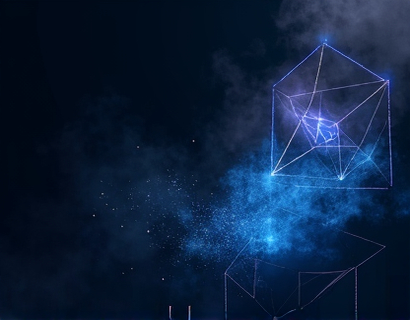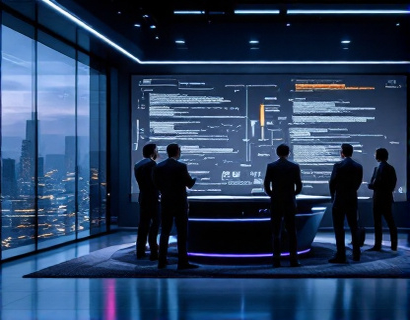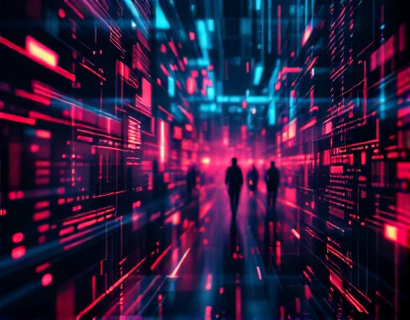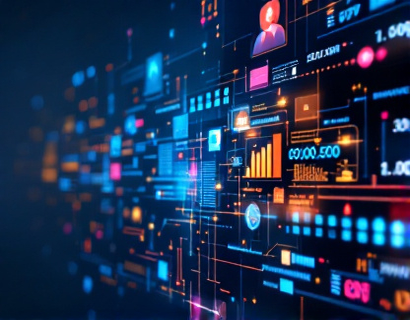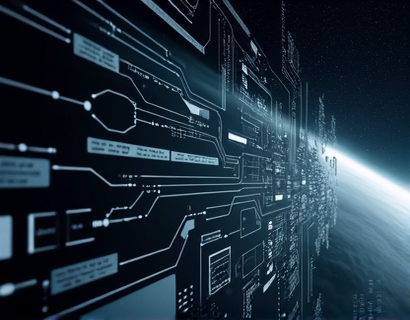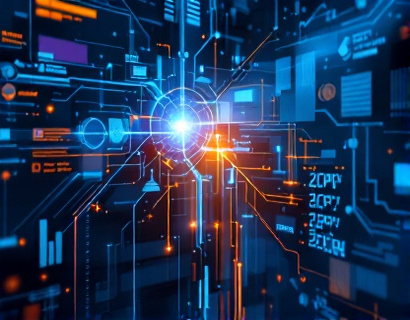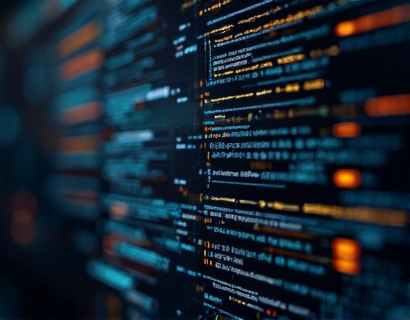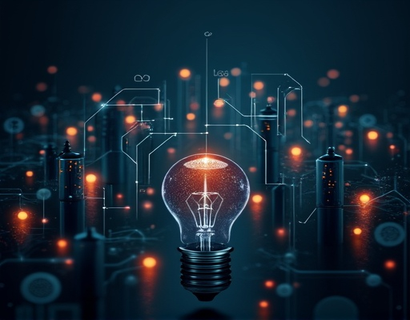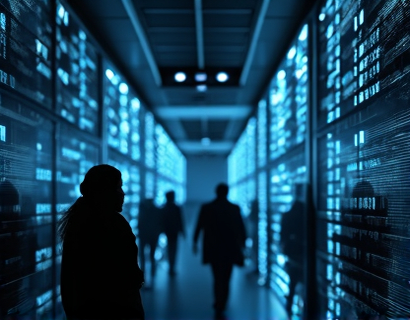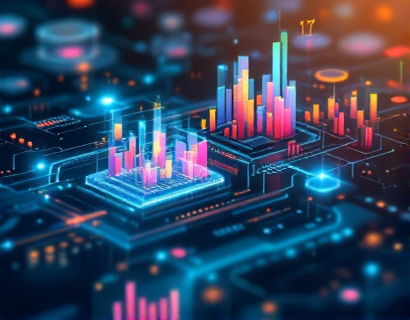Next-Gen Ucosystem Dynamics: Transforming Applications with AI and Crypto Synergy
The intersection of artificial intelligence and cryptocurrency is giving birth to a new era of technological innovation, redefining how we interact with digital applications and services. This synergy, often referred to as TechFusion, is not just a trend but a transformative force that is reshaping the landscape of technology. As we delve into this topic, it's essential to understand the foundational elements that are driving this revolution.
The integration of AI and cryptocurrency is rooted in the inherent characteristics of both technologies. AI, with its ability to process vast amounts of data, learn from patterns, and make decisions with minimal human intervention, is enhancing the efficiency and effectiveness of blockchain-based systems. Cryptocurrency, on the other hand, provides a decentralized and secure environment for transactions, which is crucial for the seamless operation of AI-driven applications.
One of the key areas where AI and cryptocurrency are converging is in the development of smart contracts. Smart contracts are self-executing contracts with the terms of the agreement directly written into code. AI can optimize these contracts by analyzing vast datasets to predict outcomes, identify potential risks, and automate complex decision-making processes. This not only increases the reliability of smart contracts but also reduces the need for intermediaries, lowering costs and increasing transaction speeds.
Another significant application of AI in the crypto space is in the realm of security. Blockchain technology is known for its robust security features, but the complexity of these systems can sometimes lead to vulnerabilities. AI algorithms can monitor blockchain networks in real-time, detecting anomalies and potential threats before they become significant issues. Machine learning models can be trained to recognize patterns indicative of malicious activities, such as fraudulent transactions or DDoS attacks, thereby enhancing the overall security of the ecosystem.
The synergy between AI and cryptocurrency is also revolutionizing the way we approach data privacy. Blockchain's decentralized nature ensures that data is not stored in a single location, reducing the risk of large-scale data breaches. AI can further enhance this by implementing advanced encryption techniques and zero-knowledge proofs, allowing users to verify transactions without revealing sensitive information. This combination ensures that users maintain control over their data while benefiting from the transparency and immutability of blockchain.
In the domain of decentralized finance (DeFi), AI and cryptocurrency are creating new opportunities for financial inclusion and innovation. AI-driven algorithms can analyze market trends, predict price movements, and optimize trading strategies, making DeFi more accessible and efficient for users. Smart contracts powered by AI can automate complex financial operations, such as lending, borrowing, and insurance, reducing the need for traditional financial institutions and lowering transaction costs.
The impact of AI on cryptocurrency extends beyond just operational efficiency. It is also driving the development of new cryptocurrencies and tokens that are designed to leverage AI capabilities. These tokens, often referred to as AI tokens, are built on blockchain platforms that support smart contracts and AI algorithms. They can be used to fund AI research and development, create decentralized AI markets, and enable the trading of AI-related assets. This not only fosters innovation but also creates new economic opportunities within the crypto ecosystem.
One of the most exciting frontiers in this TechFusion is the emergence of decentralized AI markets. These platforms allow developers and users to buy, sell, and trade AI models and data sets in a peer-to-peer manner. AI models can be trained on decentralized data sources, ensuring that the data remains private and secure. This market-driven approach to AI development accelerates innovation by enabling a diverse range of stakeholders to contribute to the creation and improvement of AI technologies.
The role of tech-savvy innovators and early adopters in this space cannot be overstated. These individuals are at the forefront of experimenting with AI and cryptocurrency, pushing the boundaries of what is possible. They are the ones developing novel applications, testing new protocols, and creating communities that drive the adoption of these technologies. Their efforts are crucial in validating the potential of AI-crypto synergy and paving the way for broader industry acceptance.
To better understand the practical implications of this TechFusion, let's explore some real-world examples. One notable application is in the field of supply chain management. AI-powered blockchain solutions can track products from manufacture to delivery, ensuring transparency and traceability. Machine learning algorithms can predict demand, optimize inventory levels, and identify bottlenecks in the supply chain, leading to more efficient and cost-effective operations.
In the healthcare sector, the combination of AI and cryptocurrency is transforming patient care and data management. AI algorithms can analyze medical records and research data to identify patterns and suggest treatment options. Blockchain ensures that patient data is securely stored and shared only with authorized parties, maintaining privacy and compliance with regulations. Smart contracts can automate insurance claims and reimbursements, streamlining the healthcare payment process.
Another area where AI and cryptocurrency are making a significant impact is in the Internet of Things (IoT). IoT devices generate vast amounts of data that need to be processed and analyzed in real-time. AI algorithms can handle this data efficiently, enabling smart homes, cities, and industries to operate more intelligently. Cryptocurrency can facilitate secure and decentralized transactions between IoT devices, ensuring that data exchange is both secure and incentivized.
The environmental benefits of this TechFusion are also noteworthy. Blockchain and AI can work together to create more sustainable systems. For instance, AI can optimize energy consumption in data centers, reducing the carbon footprint of blockchain operations. Cryptocurrency mining can be powered by renewable energy sources, further minimizing environmental impact. AI-driven solutions can also monitor and manage natural resources more effectively, contributing to conservation efforts.
As the integration of AI and cryptocurrency continues to evolve, the potential for innovation is vast. The next generation of tech-driven applications will likely see the emergence of more sophisticated AI models that are specifically designed to operate on blockchain networks. These models will be optimized for decentralized computing environments, leveraging the unique properties of blockchain to enhance performance and security.
Moreover, the development of cross-chain technologies will enable seamless interaction between different blockchain platforms, allowing AI applications to leverage the strengths of multiple ecosystems. This interoperability will foster a more connected and dynamic Ucosystem, where applications can access a wider range of resources and services.
In conclusion, the synergy between AI and cryptocurrency is not just a technological trend but a fundamental shift in how we build and interact with digital applications. The next-gen Ucosystem is being transformed by this powerful combination, offering unprecedented opportunities for innovation, efficiency, and inclusivity. As we continue to explore and harness this synergy, the future of technology looks brighter and more promising than ever.



